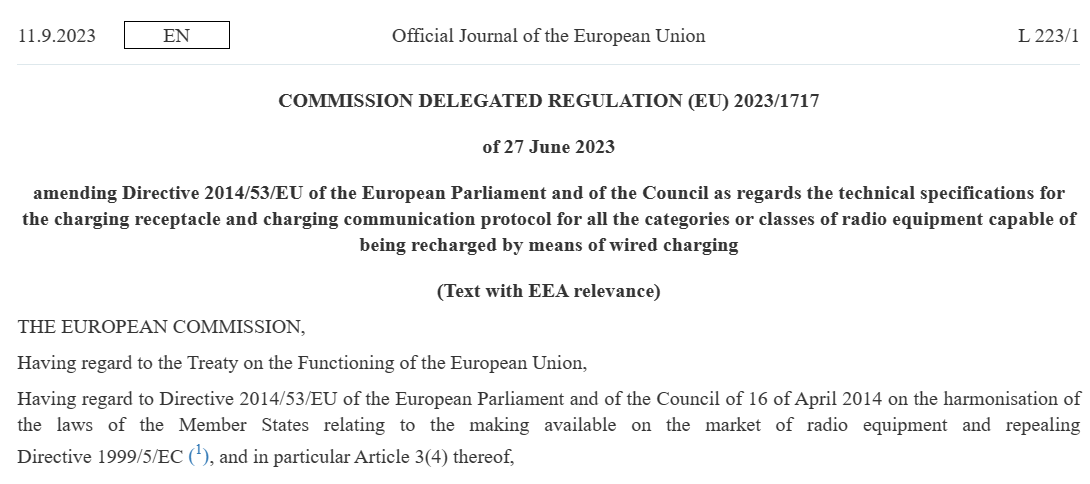With the continuous development of technology, the interoperability between radio equipment and charging equipment is becoming increasingly the focus of consumer concerns. In order to ensure this minimum common standard of interoperability, the EU has recently revised the technical specifications for the cable charging interface communication protocol to improve consumer convenience, reduce environmental waste and avoid market fragmentation.

Amendments to EU Technical Norms
On September 11, 2023, the European Union issued the Commission Regulation (EU) 2023/1717 through a Communication, which introduced a major revision of the technical specifications of the cable charging interface communication protocol. This revision is intended to ensure that the minimum universal interoperability between radio equipment and its charging equipment is achieved, thereby improving consumer convenience, reducing environmental waste and avoiding market fragmentation.1 October 2023officially implemented.
Prior to this, in accordance with Annex Ia to Directive 2014/53/EU, charging interfaces must comply with the specifications of the USB Type-C plug described in EN IEC 62680-1-3: 2021.In addition, radio equipment that can be charged by wireless charging with a voltage greater than 5 volts, current greater than 3 ampères or power greater than 15 watts should comply with the requirements of EN IEC 62680-1-2: 2021.
However, on September 5, 2022, the International Electrotechnical Commission (IEC) released the updated standards IEC 62680-1-2: 2022 and IEC 62680-1-3: 2022, both of which contain new specifications.
Impact and recommendations for companies
This revision of the technical specification will undoubtedly have an impact on the relevant export companies. For companies that export to the EU market, understanding and mastering the revisions of the relevant EU standards regulations becomes critical. This will not only affect the organization of product production, but also affect the ability to self-control the product quality.
Therefore, the Customs issued the following recommendations to the relevant export companies: First, enterprises need to strengthen the collection of information and understand the revisions of relevant EU standards regulations in a timely manner in order to organize production in accordance with the latest regulations. Second, enterprises need to strengthen the ability to self-control the quality of products after the update of the standard to ensure that the products can meet the new technical specifications requirements.


 Follow customer service WeChat
Follow customer service WeChat